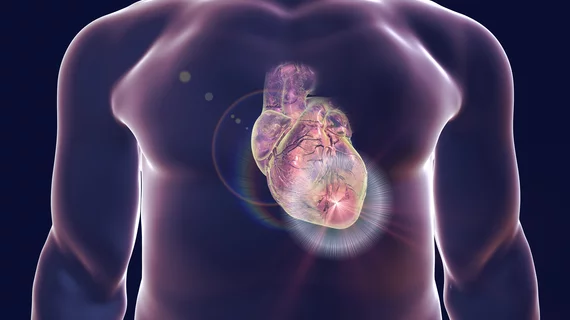CCTA associated with reduced risk of death from coronary artery disease
Performing coronary CT angiography (CCTA) in addition to standard care is associated with a lower risk of death from coronary artery disease than standard care alone, according to research published in the New England Journal of Medicine.
The authors examined data from more than 4,000 patients included in a five-year follow-up study of the Scottish Computed Tomography of the Heart (SCOT-HEART) trial. All patients were referred to one of 12 cardiology centers throughout the U.K. for a chest pain assessment. Half of those patients received just “a routine evaluation” while the other half received the evaluation and CCTA.
The rate of death from a nonfatal heart attack or coronary artery disease was 3.9 percent for the group that received standard care, but that number dropped to 2.3 percent for the patients who underwent CCTA.
“It is nice to be able to show an admitting trail that makes an impact and a difference on outcomes,” lead author David Newby, MD, PhD, of the University of Edinburgh, said in a prepared statement from the Society of Cardiovascular Computed Tomography (SCCT). “This is the first time we have been able to do that with a noninvasive test.”
“The SCOT-HEART trial is another important milestone in the development of evidence to support the use of cardiovascular CT,” Suhny Abbara, MD, president of the SCCT, said in the same statement. “The trial demonstrates a drastic reduction in the incidence of myocardial infarction and death, further establishing cardiovascular CT as a clinically proven test that can positively impact the work of our members, helping them develop and adopt prevention strategies for their patients that save lives.”
The SCCT also noted in its statement that, according to recent research published in the Journal of the American College of Radiology, CCTA utilization is on the rise among radiologists.

